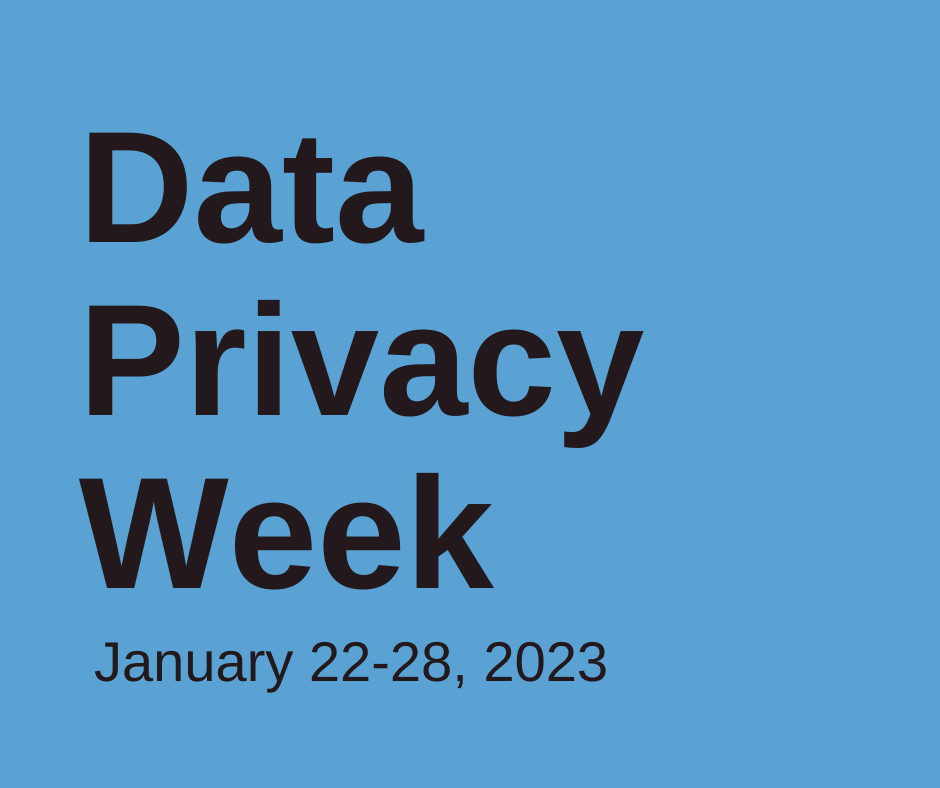As we all continue to navigate an ever-expanding digital landscape, we must be aware of the trail of data we leave behind. This year, during Data Privacy Week, which is taking place from January 22nd-January 28th, we are shining a spotlight on the importance of protecting our digital footprints and holding organizations accountable for respecting our privacy.
This year’s two themes, “The Story of You” and “Organizations: Respect Privacy,” underscore the need for individuals to take control of their online security while also putting pressure on businesses to prioritize the privacy of their customers and stakeholders.
With cyber threats on the rise, today is the day to take action and safeguard your personal information. Join us as we explore the significance of these two themes and seek ways to make informed decisions about our digital lives.
The Story of You
As a consumer, it sometimes feels like, every day, there is a new headline about massive security breaches. Most recently, millions were impacted by breaches affecting LastPass, PayPal, and Uber. When these breaches occur, they should cause us all to pause and think about what systems we use or have used that might store our personal information.
If you were to ask yourself, would you know? How many places is your personal identifying information (PII) stored online? This includes,
- Birthdays
- Social Security numbers
- Credit card information
- Any type of sensitive data.
This is the information that a cybercriminal could use against you or impersonate you.
It is important to not only be aware of where your PII is stored but also to pay careful attention to news that is released about hacks and breaches. If you are notified that your personal information has been compromised, you should always take this seriously. Never ignore an email, pop-up, or communication from a system or app you use that indicates you should reset your password.
If you do receive a notification like this, start by securing the account. Change your password and enable multifactor authentication.
If you need help creating a secure password, check out our guide to 5 Ways to Create a Strong Password.
Additionally, whenever possible, remove as much PII as possible from your accounts. If you have unused accounts, log in and, if possible, close them down. If you can’t shut down an account, pull out as much of your information as possible.
It is also worth noting that you don’t need to wait for a breach to change your password. One best practice is to change your password at least once a year. If you aren’t sure whether or not it’s time to create a new password, we invite you to check out our guide, 5 Signs That It Is Time to Update Your Password. Remember, when it comes to your online security, it is better to be safe than to be sorry.
Organizations: Respect Privacy
As organizations, a lot of responsibility lies on our shoulders to take care of the data we store. We should respect our employees’ and customers’ privacy and do everything we can to protect their information. This should include implementing strict access controls for sensitive data and only giving employees access to the data they need to do their jobs.
All systems should also use encryption to protect sensitive data. Internal security teams should ensure proper security is turned on at all times and should audit systems frequently.
Additionally, we should be training our employees on data privacy best practices and teaching them how to spot and report potential breaches. Employees should understand how to handle sensitive data and protect downstream customers.
Reflecting on Our Data
Data Privacy Week is a great time to pause, consider the importance of protecting our personal information in the digital age, and take steps to safeguard our data. Remember, your data is precious, and you deserve to be selective about who you share it with.
This week, we invite you to stop and think about the following actions you can take:
- Be vigilant about the information you share.
- Use strong passwords and two-factor authentication.
- Stay aware of privacy policies and your rights.
- Schedule updates to security patches and software.
Together, we can do our part to protect our data from potential breaches and misuse.
Interested in learning more about protecting your data? Have a conversation with our experts to get started.
